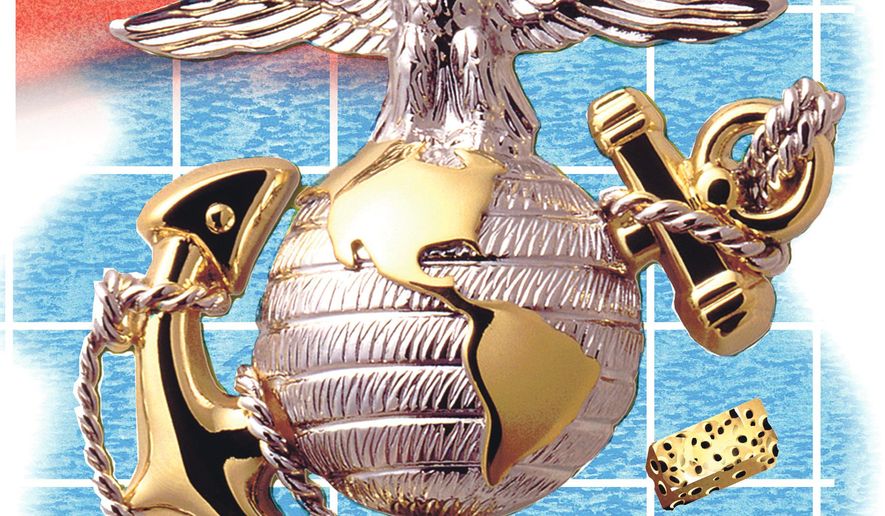OPINION:
There is a growing consensus that China represents both a malign economic threat to this nation’s security, and a military threat to our interests in Asia and the Pacific over the next 20 years.
Of all the U.S. military services, the Marine Corps has been most aggressive in planning to change its force structure to address the Chinese threat in the Indo-Pacific area. In order to buy the anti-aircraft missiles and long-range rockets it will need to help to deconstruct the Chinese anti-access/area denial (AA/AD) complex designed to keep U.S. forces out of the South China Sea, the Marine Corps commandant, Gen. David Berger, has proposed a manpower reduction of 20,000 personnel and the elimination of its tanks and most conventional artillery.
The response to this in defense circles has generally been positive, but there are critics. Naturally, some artillerymen and tankers — active and retired — object to the loss or downgrading of their specialties. That can generally be written off as parochialism and handled as an internal matter. But there are other concerns, and the Marine Corps should address them seriously.
From a budgetary standpoint, there is a danger that the Department of Defense will say, “thanks for your contribution to the current budget crisis,” and not reinvest the savings in the new equipment the Marine Corps needs to retool for Chinese contingencies. The Navy and Air Force would likely abet the Pentagon budget cutters in this, as the Marine Corps is seeking capabilities that both services see as being within their respective spheres. The Marine Corps has always stayed close to Congress, and the Corps’ Office of Legislative Affairs can expect to burn some midnight oil over the next decade to ensure that the Marines do not see their force structure sacrifices wasted.
The most troubling concern regarding the Marine Corps’ pivot to China is that it will lose its worldwide “force-in-readiness” posture. Nothing the commandant has proposed would indicate that, but some critics have voiced the fear that the China focus will decrease the Marine Corps’ emphasis on its forward-afloat Marine Expeditionary Units (MEUs).
Three of these special operations capable task forces are always forward-deployed in the world’s most likely trouble spots (Arabian Sea, Mediterranean and the Western Pacific regions). This capability — albeit with several name changes — has been invaluable over the last half century as the nation’s force that “does windows.”
When a U.S. embassy needs to be reinforced or evacuated, the MEU is almost always the force of choice because it is already in the region. The MEUs and their associated Navy shipping provide the landing craft, helicopters and firepower to give an evacuation or a reinforcement credibility.
When disasters strike unexpectedly, MEUs are often the first to respond to them in supporting America’s friends and people who we want to be our friends. This is particularly true in the Indo-Pacific region where the United States and China vie for influence. In places as diverse as Bangladesh, Indonesia, Thailand and India, MEUs and their associated naval shipping have been the first to respond with disaster relief while China has been slow.
Finally, there is a concern that the next big war will be somewhere rather than China. Wars have a disagreeable habit of breaking out where you do not expect unless you happen to start them. Former Navy Secretary James Webb makes this point in a recent article in National Interest.
The Marine Corps would do well to keep some of the divested force structure in the reserves and make preparations for radical growth in the event that it has to support a major war elsewhere as a hedge against guessing wrong on China. A warm reserve base for the Marine Corps in case it is called upon to “do windows” again in a prolonged war elsewhere than in China would be due diligence.
This does not mean that the emphasis on China by the Marine Corps is wrong. Prior to World War II, the Marine Corps prepared to fight Japan with amphibious warfare, a radical concept at the time. But while doing so, Marines were still fighting the small wars raging in the Caribbean and Central America. When the Korean War broke out, the Marines were ready when the nation wasn’t. The official Marine Corps’ motto is “Semper Fedelis” (always faithful), but its unofficial motto is “Semper Gumby” (Always flexible). The Marine Corps has always prided itself in being the nation’s force in readiness. Today’s Marines need to keep that in mind.
• Gary Anderson retired as the chief of staff of the Marine Corps Warfighting Lab. He lectures at the George Washington University’s Elliott School for International Affairs.




Please read our comment policy before commenting.